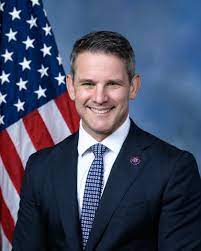The Aftermath: The Hidden Insurrection
Episode 4 of The Aftermath examines the Jan. 3, 2021 attempted takeover of the Justice Department and its lasting impact.

Today, we’re pleased to release Episode 4 of the second season of Lawfare’s narrative podcast series, The Aftermath, which examines the search for accountability for the Jan. 6, 2021 attack on the U.S. Capitol.
Episode 1 of this season dives into the origins and legacy of the Big Lie—the claim that Donald Trump was the rightful winner of the 2020 presidential election. We considered what has happened to one of its strongest advocates: Rudy Giuliani. Has he, and others like him, been held to account?
Episode 2 focuses on the legal theory that inspired the insurrection and the lawyers—specifically John Eastman—who promoted it. The theory engendered a scheme to pressure Vice President Mike Pence to intervene during the election certification process on Jan. 6 and assert authority to reject the votes. Pence refused to go along with the plan, even as rioters outside the Capitol were calling for his lynching. Has there been any accountability for the architects of the legal strategy, like Eastman, who spurred an insurrection?
Episode 3 examines the influence of social media. It was the reason why claims of election fraud morphed into the Big Lie—and later #StopTheSteal. It was the reason armed Trump supporters organized and stormed the Capitol. And it was the reason, eventually, that they left. We look at how White House aide Dan Scavino used social media to craft Trump’s message in the lead-up to Jan. 6—and what’s happened to him since. We look at what social media companies were doing as their platforms were inundated with lies, threats, and even plans for violence—and why they failed to stop them. It all leads to an uncomfortable question: if nothing has been done to fix what social media did to bring about Jan. 6, is 2024 destined to be a repeat of 2020?
In Episode 4, we tell the story of the lesser-known insurrection that happened just days before a violent mob descended on the Capitol. Trump, frustrated that Justice Department leadership refused to support his false claims of election fraud, found someone more amenable to doing his bidding: an environmental lawyer named Jeffrey Clark.
Then serving as the acting head of the Justice Department’s civil division, Clark began meeting with Trump in secret. They devised a plan to keep Trump in office: remove the acting attorney general, install Clark in his place, and deploy the full might of the Justice Department in the fight to overturn the election. On Jan. 3, they put the plan into motion.
It came very close to succeeding.
But all of this happened behind closed doors, out of public sight. So when a crowd amassed at the Capitol three days later to stop Congress from certifying the election, no one knew that there had just been an attempted insurrection at the Justice Department, too.
So what happened to the man who tried to depose the acting attorney general? He became the subject of investigations by the inspector general and multiple committees in Congress. He faces bar disciplinary action and criminal indictment. But his efforts to delay the proceedings have been effective so far; the question of his accountability remains unanswered.
And what happened to the institution that he plotted against? Has it done anything to fortify itself, to repair the weaknesses he exposed? We don’t really know. The new administration’s Justice Department promised a return to normalcy—which likely means that if anything is happening, it’s happening quietly.
Where does that leave us now, three years after the hidden insurrection? It depends on your perspective.








